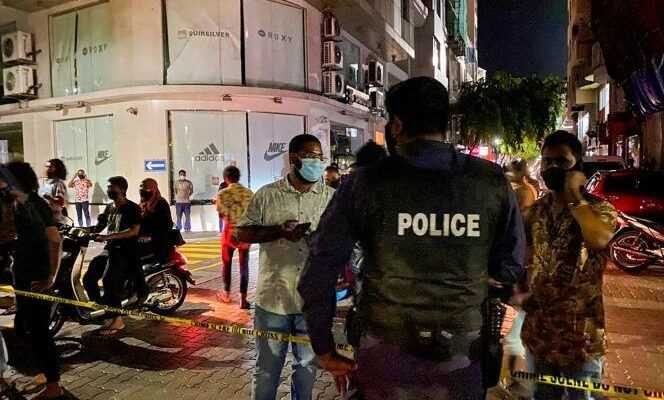It is an unprecedented shock for the Maldives, a relatively peaceful archipelago in the Indian Ocean. On Thursday, May 6, a bomb attack targeted former President Mohamed Nasheed, the country’s first democratically elected president, between 2008 and 2012, and current president of the Majlis, the country’s parliament. Motorcycle bomb exploded near Mr Nasheed’s home as he got into his car, in Malé, capital and main island of the country. In addition to superficial bruises on the face, the former president was hit by several pieces of explosive debris in the lungs and liver. After undergoing four surgeries, he was released from intensive care on Saturday (May 8) but remains in intensive care, doctors said.
President Ibrahim Solih, political ally of Mohamed Nasheed, promised that those responsible for the attack “Would be brought to justice”. Two members of the Australian Federal Police joined investigators on Saturday to identify the perpetrators of the attack. They should be assisted by a British police official and two members of the United Nations Office on Drugs and Crime. Police, who arrested the owner of the motorcycle bomb and a second suspect, said they were focusing on Islamist extremism.
Mohamed Nasheed, known for his commitment to climate change and for his past as a political prisoner, is a divisive figure in the Maldives. Hated by the most conservative Islamists, who reproach him for his supposed lack of religious fervor, he is adored by a part of the population, who sees him as the hero of the democratization of the archipelago. Elected in 2008, Mr. Nasheed initiated the liberalization of the country and a diplomatic rapprochement with Israel, shaking up Maldivian society, officially “100% Muslim”. In the archipelago, some judges still strictly apply Sharia law and alcohol is reserved for tourists, who like luxury hotel islands away from the population to enjoy the beaches and admire the coral reefs.
“Many enemies”
In 2012, a police coup, followed by elections, sent Mr. Nasheed back to the opposition. His successor, Abdulla Yameen, is initiating an unprecedented rapprochement with China, to the detriment of India, the archipelago’s historic ally. Many infrastructure contracts and hotel concessions were then signed with Chinese companies. In 2018, however, Ibrahim Solih, a close friend of Mohamed Nasheed, was elected president, while he took the head of Parliament. A year later, a scandal involving the opaque tourism promotion authority broke out. The former president, Abdulla Yameen, is arrested, then sentenced to five years in prison for money laundering. At the same time, the new power is moving away from Beijing and reconnecting with India, causing friction with China, which fears seeing its investments questioned.
You have 42.69% of this article to read. The rest is for subscribers only.
